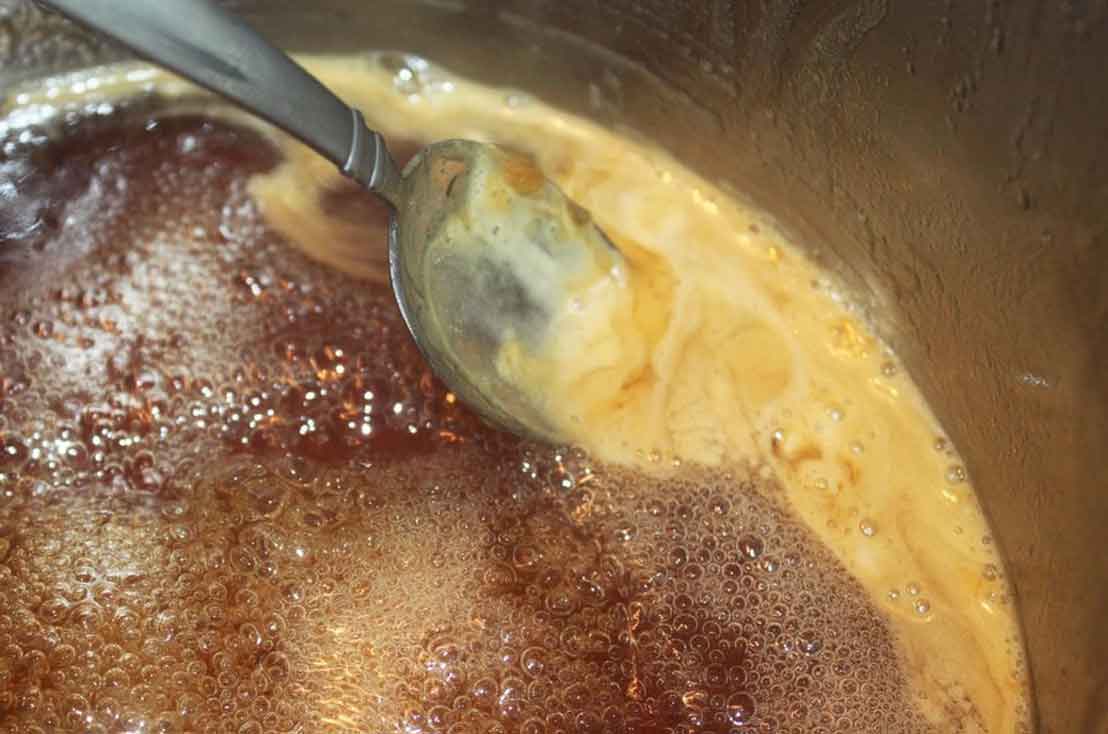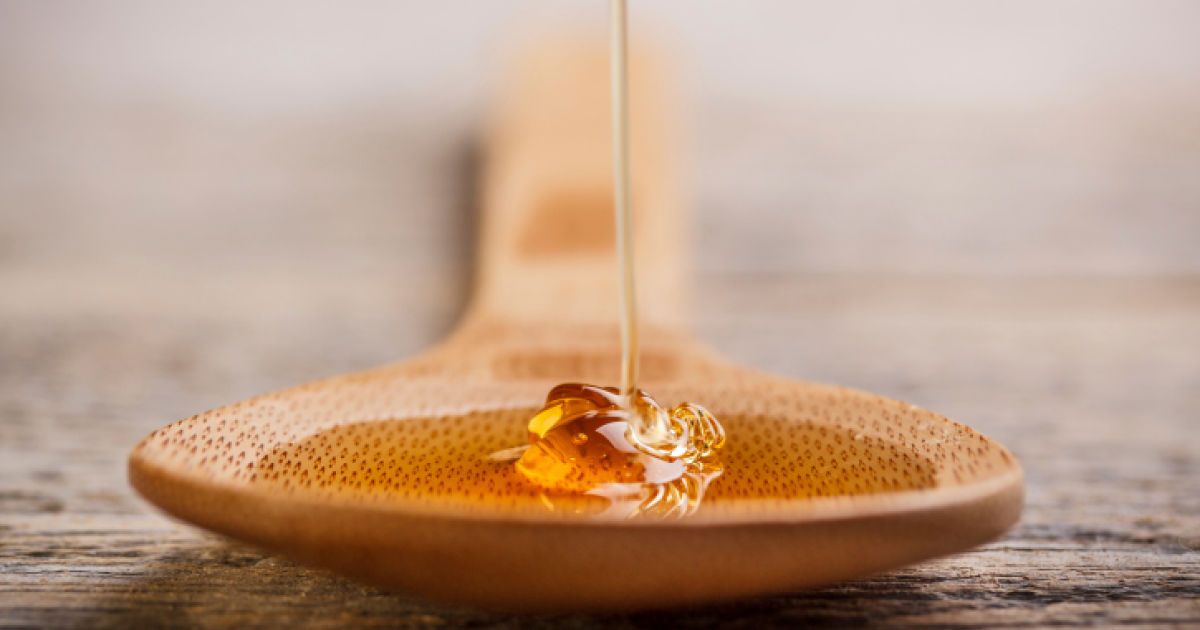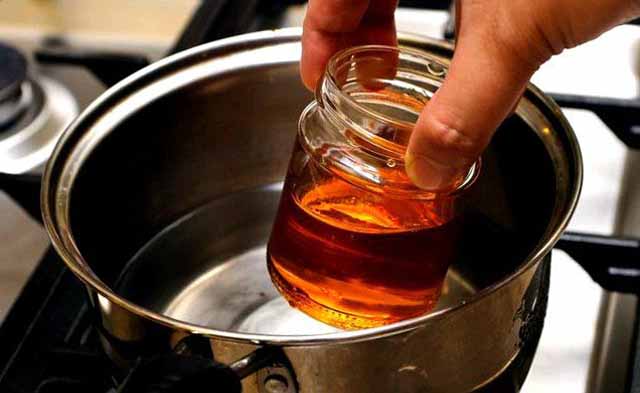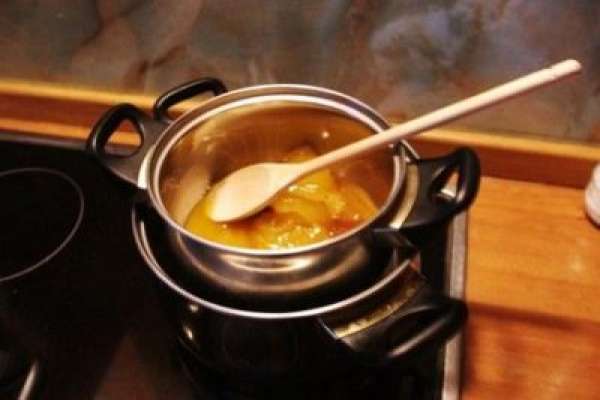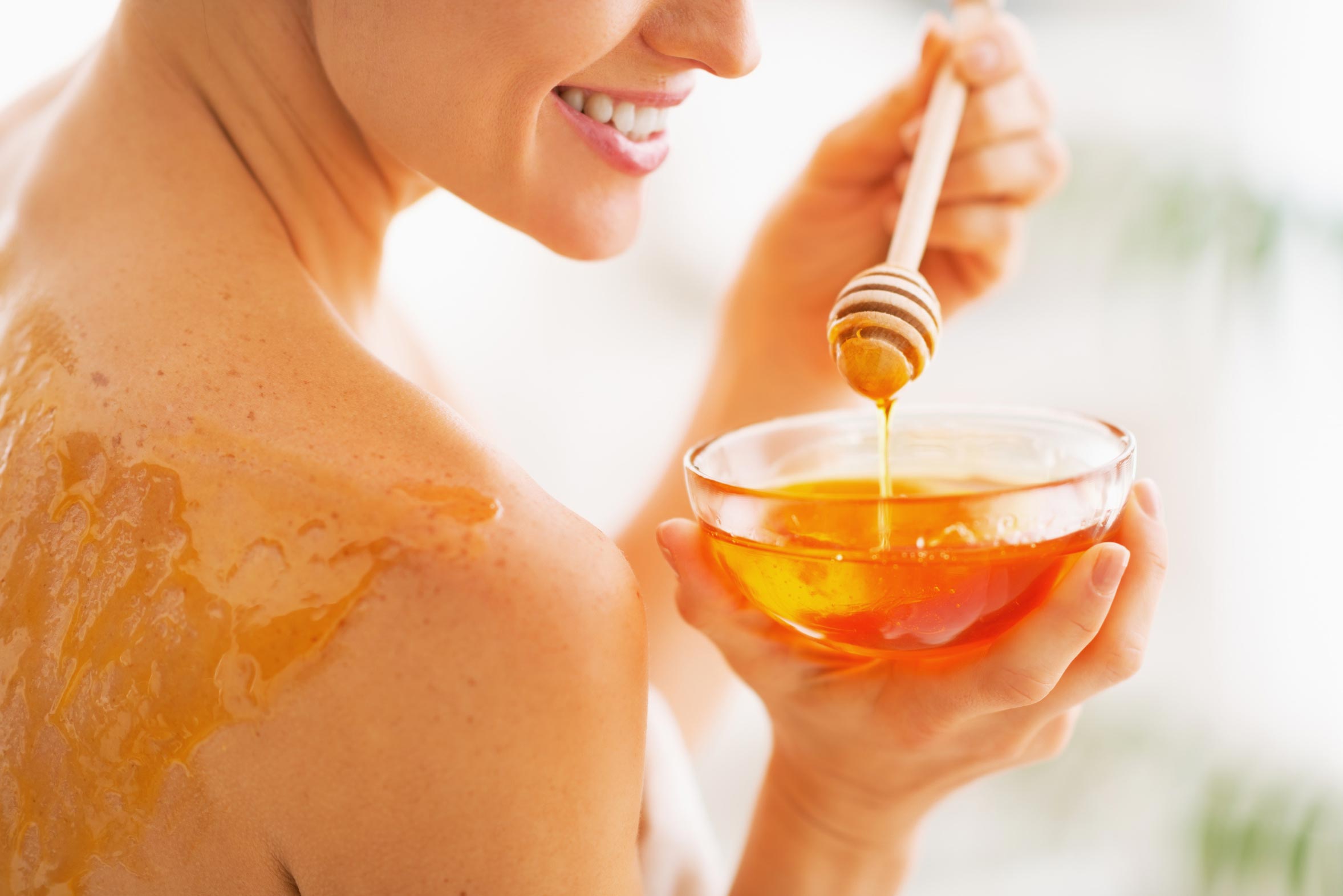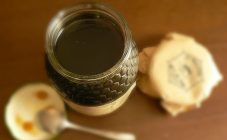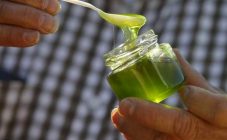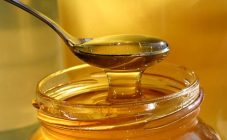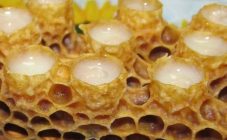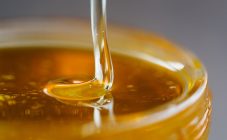Content:
Honey is considered one of those foods that never go bad. However, improper storage conditions or early collection can render such a healthy product unusable. Many are worried about the question: why honey ferments, and what to do if it fermented. The answers to these questions are below.
Can honey ferment?
This product is a special sugary excretion that bees produce after collecting nectar. Therefore, in its composition it contains yeast fungi, which, being in favorable conditions, begin to actively break down, invoking the fermentation process. The primary source and reasons for this are improper storage conditions:
- elevated room temperatures;
- high humidity during storage.
Can mature high quality honey ferment? Yes, it is quite possible. Although both the composition and structure of this product affect its tendency to ferment, the main causes of this problem are storage conditions. For example, in high humidity even sealed honeycombs can ferment.
The fermentation process appears nonspecific and quite recognizable. The fermented beekeeping product begins to sour: bubble, forming foam, becomes unpleasant to the taste. At the initial stage of fermentation, honey is sour, and at the last stage it is very bitter. It is better not to eat such a delicacy.
Fermentation reasons and how to avoid it
Causes
Early picking and increased humidity
The nectar collected by the bees is quite moist in itself. In its composition, it contains about 60% water. After harvesting, the bees begin to create honey, which is then folded into a honeycomb. Further, the process of moisture evaporation takes place, followed by the sealing of the honeycomb. If the honeycomb is sealed by one third, it means that it is ripe.
It happens that inexperienced beekeepers start pumping honey before the unnecessary moisture evaporates. Good honey should contain between 14 and 21 percent liquid. Otherwise, if the moisture content of the product exceeds the declared 21 percent, moisture activates yeast fermentation, and it begins to sour.
A few months after harvesting, honey undergoes crystallization. During this period, it can stratify. This may mean that the moisture in the product has exceeded the permissible level of 21%. Now, every day, he will release a large amount of fluid. Soon, the separated top layer will begin to foam, acquire an unpleasant taste, and the consistency itself will become loose.
But the stratification process does not always entail fermentation. It can occur if the moisture content of the product fluctuates around 19-21 percent, as a result of which a small layer of liquid up to 2 cm can form. It is absolutely harmless and does not affect the quality of the product in any way. In this case, the original taste and consistency remains unchanged.
Incorrect storage conditions
One of the most common mistakes that leads to the fact that an amber product can turn sour is the lack of tightness of the storage vessel.As a result, various bacteria enter the product, provoking the processes of its spoilage. In addition, it absorbs moisture from the environment, saturates it and begins to ferment.
Also, fermentation calls out for direct sunlight, storage in a room with high humidity, high temperatures and storage in a metal container.
Structure
In many ways, the quality of this product depends on the structure. If honey is candied, has a granular consistency, then it will sour faster than homogeneous, recently pumped out. This is due to the fact that crystallized glucose binds additional water molecules.
Impurities
Some beekeepers, in pursuit of profit, are able to add various admixtures that are not compatible with the product and even ordinary water to honey. This is done in order to intentionally increase the mass. To prepare such a fake, the added ingredients are boiled several times, until it looks like real honey.
Such manipulations do not manifest in any way initially, and then cause a natural fermentation reaction. It is necessary to be careful when choosing such a product, to study it carefully before buying. The presence of precipitation and incomprehensible inclusions indicate that this is a fake.
Many people are tormented by the question, can natural honey ferment? Sure. The fermentation process, although it may be associated with incompatible additives, has other prerequisites, set out above.
The opinion that has appeared among people that natural honey does not deteriorate is due to the fact that people intuitively store it in the right conditions: glass sealed containers, a dark dry place, not too humid and not too cold. In such conditions, it can be stored forever.
What to do with sour honey
If a bubbled white foam forms in a jar of honey, and he himself has acquired a strange taste, this means that he has fermented. What to do with sour honey? There are some manipulations that can save him.
If the fermentation process has just begun to affect the product, to prevent it, you must do the following:
- remove white foam from the surface of the product, capturing a layer of an unaffected fragment. After all, the bacteria that caused the bacteria, as well as water, could penetrate much deeper than the affected area;
- heat the honey by placing it in a water bath at about 600From for a time from 40 minutes to an hour. As a result, all bacteria that caused spoilage will die, and the moisture that promotes their activity will evaporate.
As a result of exposure to high temperatures, the fermentation process will stop for a short time, and the shelf life of honey will last. It is worth remembering that high temperatures also kill all the beneficial properties, and only a natural sweetener is obtained.
Can honey turn sour?
Having tasted honey just bought or kept at home, we felt a sour or even strongly sour taste. What does this mean? And why is honey sour? The reason is all the same yeast fungi, and the fermentation process is accompanied by the sour smell of the product.
The reasons for the manifestation of such processes are the same: crystal structure, early harvest, additives and high temperatures.
To get rid of the sour taste, you can, of course, boil the product and save it from further fermentation, but it is advisable to immediately throw it away. After heat treatment, it will lose its beneficial properties.
Can I eat?
If honey is sour, even if there is no white foam on top, you should not eat it. Moreover, if the fermentation processes are pronounced, it must be disposed of immediately.
If you know that the product contains any impurities, even if it is not spoiled, you should not use it. It is not known what ingredients were added by unscrupulous beekeepers for profit.
Honey that has undergone competent heat treatment can be eaten. But it should be borne in mind that he has already lost all its useful properties. Eating such a sweet mass in its pure form is not desirable, especially for people with disorders of the digestive system. Even in completely healthy people, it can cause heartburn, upset stomach, and unpleasant feelings of heaviness in the abdomen.
You can use processed honey in baked goods. Even thermally processed, it does not lose its flavor characteristics and when added to buns or cake layers, a pleasant honey taste will be felt. Processed honey can be added in the same proportions as normal honey. If you don't know what to bake, the best option is to make a honey cake.
The most common method of using fermented honey is to make mead. Mead is an alcoholic beverage made with honey, water, and yeast. It tastes like sweetened kvass with a slight degree, with a pleasant characteristic aroma. This product is very specific, and not everyone may like it, but in Russia it has long been the most popular alcoholic drink.
Among other things, many housewives use processed honey for cosmetic purposes. It is mono to prepare special honey scrubs or masks from this product. You can also use honey soothing baths. Just take into account the fact that thermally processed honey has lost its beneficial properties, so the effect of its use will only be aromatic.
Can fermented honey be given to bees?
Many inexperienced beekeepers, in addition to early pumping, can make another mistake: to judge that fermented honey can be given to bees. This is strictly prohibited. Fermented honey is dangerous for the human body: it can cause severe troubles with the digestive tract, and for small insects it is simply fatal: it leads to the death of the entire colony.
It is also not recommended to give bees thermally processed honey. It is also nutritious and pleasant to the taste, but no longer contains useful substances in its composition. Bees fed in this way can quickly weaken and even die. Therefore, you need to feed the bees only with a good, correctly pumped product.
Can honey turn sour - many lovers of this amber delicacy often ask this question. They also don't understand why natural honey is sour? This is a very healthy and tasty product, but if stored improperly, it can deteriorate: ferment and acquire an unpleasant sour taste. To prevent this from happening, you must adhere to simple but strict storage rules. But if honey is still spoiled, then there is no need to be upset: with a mild fermentation, it can be processed, and then used to create baked goods, drinks or cosmetic procedures.

